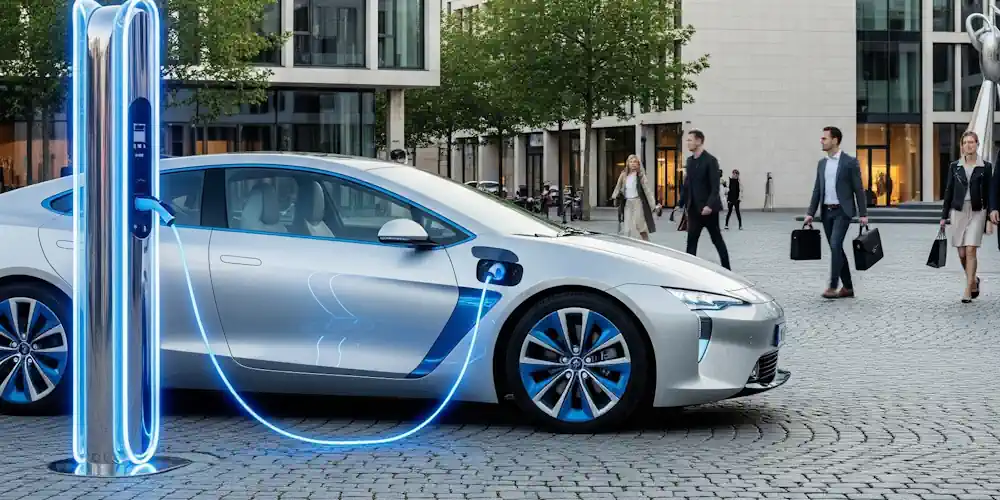Hybrid Car Prices in Germany 2025

Hybrid Car Prices in Germany 2025
Beyond the Showroom Price: Understanding the Long-Term Value of Hybrid Cars in Germany (2025)
While the initial purchase price is a key consideration for any car buyer, a truly informed decision involves looking at the bigger picture. In Germany’s rapidly evolving automotive landscape of 2025, hybrid cars offer a compelling long-term value proposition that extends far beyond the sticker price. This article will delve into the total cost of ownership and lasting benefits of choosing a hybrid in Germany, providing an updated estimate of model prices in Euros.
The True Cost of Ownership: Hybrids in the Long Run
German drivers in 2025 are increasingly savvy about the total cost of owning a vehicle. Hybrid cars present significant advantages in this regard:
- Reduced Fuel Expenditures: The hallmark of hybrid technology is its ability to lower fuel consumption, especially in urban environments. Over the years, these savings can add up significantly, offsetting some or all of the initial price difference compared to traditional gasoline cars.
- Lower Maintenance Costs: Hybrid systems often experience less wear and tear on certain components, such as brakes, due to regenerative braking. This can translate to lower maintenance costs over the lifespan of the vehicle.
- Potential Tax Benefits and Incentives: While subject to change, Germany has historically offered tax advantages and incentives for lower-emission vehicles, including hybrids. These can further reduce the overall cost of ownership.
- Strong Resale Value: Hybrid vehicles from reputable manufacturers have historically held strong resale values in the German market, making them a sound long-term investment.
A Forward-Looking Investment: Hybrid Car Prices in Germany 2025
The following are estimated prices for hybrid car models in Germany for the year 2025, presented in Euros. Keep in mind that these figures are approximations and can vary based on trim levels, optional features, and any government incentives or local market conditions.
Full Hybrids (Estimated Price Range in Euros):
- Toyota Prius: €32,500 – €42,500
- Toyota Corolla Hybrid: €29,500 – €37,500
- Toyota Camry Hybrid: €37,500 – €47,500
- Toyota RAV4 Hybrid: €40,500 – €52,500
- Hyundai Ioniq Hybrid: €30,500 – €40,500
- Hyundai Kona Hybrid: €27,500 – €35,500
- Kia Niro Hybrid: €32,500 – €42,500
- Kia Sportage Hybrid: €35,500 – €47,500
- Renault Clio E-Tech Hybrid: €25,500 – €32,500
- Renault Captur E-Tech Hybrid: €27,500 – €34,500
- Honda Jazz e:HEV: €26,500 – €34,500
- Honda CR-V e:HEV: €37,500 – €50,500
- Suzuki Vitara Hybrid: €24,500 – €32,500
- Suzuki Swift Hybrid: €20,500 – €27,500
Plug-in Hybrids (PHEV) (Estimated Price Range in Euros):
- BMW 330e: €47,500 – €57,500
- BMW 530e: €57,500 – €72,500
- BMW X5 xDrive45e: €72,500 – €92,500
- Mercedes-Benz C-Class PHEV: €50,500 – €62,500
- Mercedes-Benz E-Class PHEV: €60,500 – €77,500
- Mercedes-Benz GLC PHEV: €57,500 – €72,500
- Volkswagen Golf GTE: €42,500 – €52,500
- Volkswagen Passat GTE: €44,500 – €57,500
- Hyundai Tucson Plug-in Hybrid: €40,500 – €52,500
- Kia Niro Plug-in Hybrid: €37,500 – €47,500
- Mitsubishi Outlander PHEV: €42,500 – €57,500
- Volvo XC60 Recharge: €57,500 – €72,500
- Volvo XC90 Recharge: €72,500 – €92,500
- Audi A3 Sportback TFSI e: €40,500 – €52,500
- Audi Q5 TFSI e: €57,500 – €72,500
Mild Hybrids (Estimated Price Range):
- As previously mentioned, mild-hybrid technology is often integrated into specific engine variants. Expect a moderate premium over their non-hybrid counterparts across various manufacturers like Audi, BMW, Mercedes-Benz, and Suzuki.
Note: This list is intended as a general guide. For the most precise and up-to-date pricing information, consult official dealership websites and manufacturer resources in Germany. Also, remember to factor in any potential government or regional incentives that may be available.
Conclusion: The Smart Choice for Long-Term Value
In 2025, hybrid cars in Germany represent more than just a bridge to an electric future; they are a strategic choice for drivers seeking long-term value. By considering the total cost of ownership, including fuel savings, potential tax benefits, and strong resale value, German consumers will find that hybrid vehicles offer a smart and sustainable path to mobility.






